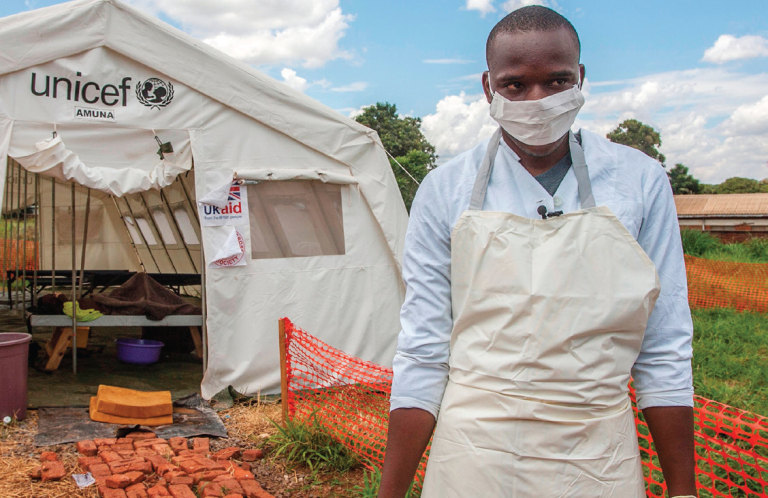Children account for 42% of Nsanje cholera cases
Authorities in Nsanje have said 14 of the 33 cholera cases registered in the district this year are children, representing 42 percent.
Speaking in an interview yesterday, Nsanje District Health Office spokesperson George Mbotwa said the cases have mostly been confirmed in children aged between five and 18.

He said the cases are also often from families with a history of an adult who was infected with the diseases.
Mbotwa said the office is registering cases of four to five children in a household being infected with cholera.
He said: “The situation is worsening because people are not adhering to good personal hygiene practices with some relaxing in health-seeking behaviours.”
Mbotwa said the development means the figures might rise further as the office was still recording cases.
A month ago, Machinga District Hospital registered a cholera case, bringing the total to 34.
According to Mbotwa, six people are being treated in treatment centres while 25 have been discharged.
However, apart from those coming from Mozambique, some of the cases are from traditional authorities Ndamera, Nyachikadza and Malemia in the district and are being treated at Ndamera Health Centre and Nsanje District Hospital.
Unicef Malawi emergency specialist Estere Tsoka described the situation in Nsanje as fragile with high potential of the disease spreading to many areas.
“There is need for immediate action to prevent further spread,” she said.
Tsoka said, so far, Unicef is supporting the treatment of water sources in households, communities and institutions with chlorine to prevent the further spread of the disease. It is also engaging communities to promote good hygiene practices, including washing hands with soap.
Unicef is procuring 3.9 million doses of the oral cholera vaccine to be administered in eight districts.
“In the medium to long term, provision of climate resilient water supply and sanitation services can help prevent waterborne disease outbreaks in the future,” she said.
Nsanje first recorded five cases on March 14, including one death. They were imported from Migaza in Mozambique.





